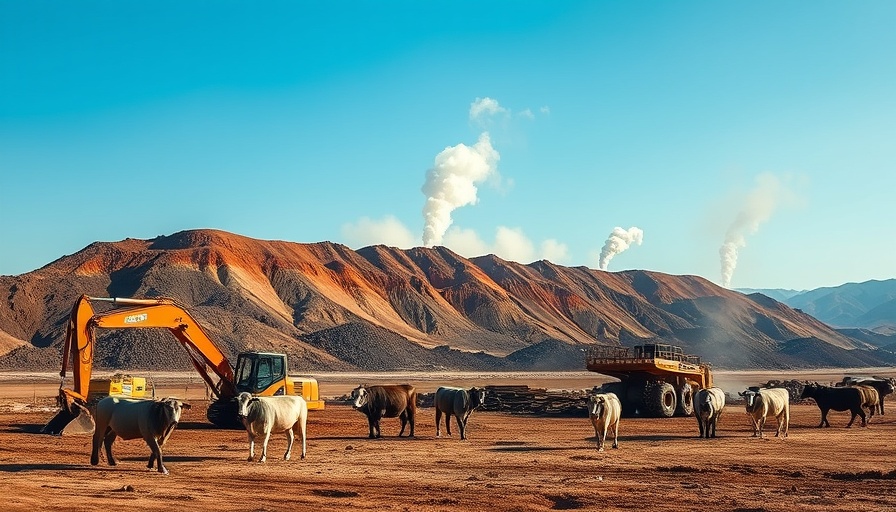
Understanding the Rising Levels of CO2 in Earth's Atmosphere
In a concerning revelation, Earth’s atmosphere now holds more carbon dioxide (CO2) than it has in millions of years, as reported by scientists at NOAA’s Mauna Loa Observatory. This milestone, marked in May 2025 with an alarming average of 430.2 parts per million (ppm), highlights the far-reaching impact of human activities, particularly the relentless burning of fossil fuels.
The Significance of the Recent Measurements
The increase of 3.5 ppm from the previous year is not just a statistic; it signifies a troubling trend in climate change that cannot be ignored. Ralph Keeling, director of the Scripps CO2 Program, condemned the continuous rise, stating, “Another year, another record.” This sentiment underscores the urgent need for actionable environmental policies and collective responsibility.
Why Should We Care About CO2 Levels?
Carbon dioxide is a greenhouse gas, meaning that it contributes to the greenhouse effect, which warms the Earth’s atmosphere. As CO2 levels rise, so do the temperatures, leading to severe climatic events such as heatwaves, floods, and extreme weather conditions. Environmentalists and scientists agree that these trends directly threaten biodiversity, human health, and the stability of natural systems.
Global Perspectives on CO2 Emissions
The rise in CO2 levels is not isolated to specific regions. It is a global phenomenon that reflects a collective lifestyle choice reliant on fossil fuels. Countries around the world, from industrial powerhouses to developing nations, are grappling with the impacts of climate change. A worldwide commitment to reducing emissions is imperative, yet progress remains slow.
Counterarguments and Diverse Perspectives
Some naysayers argue that the increase in CO2 might not drastically affect climate dynamics due to its perceived natural variability. However, scientific consensus strongly refutes this notion, emphasizing that the current rate of increase is unprecedented in recorded human history, primarily due to human activity. This dichotomy of perspectives presents a challenging landscape for policymakers.
What Actions Can We Take?
Addressing rising CO2 levels requires collective action across various sectors. Investing in renewable energy, improving energy efficiency, and promoting sustainable practices are essential steps individuals and businesses alike can incorporate into their daily operations. Engaging in community discussions about sustainable living plays a vital role in raising awareness and driving change. The choices we make today shape the environment of tomorrow.
A Call to Action
The data presented offers a critical wake-up call for people and policymakers. It reinforces the reality that climate change is not a distant threat; it is here and escalating. As global citizens, we must embrace this knowledge responsibly. Together, we can advocate for policies that prioritize sustainability and mobilize our communities to engage in eco-friendly practices. Only through concerted efforts and accountability can we hope to manage our planet's health.
Understanding the profound implications of rising CO2 levels is essential not only for climate scientists but for everyone interested in the future of our planet. Let’s be informed, let’s be active, and let’s strive for a healthier environment.
 Add Row
Add Row  Add
Add 




Write A Comment